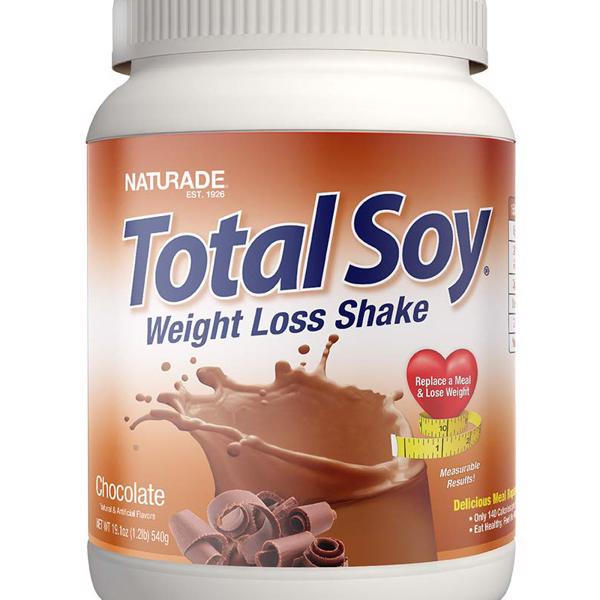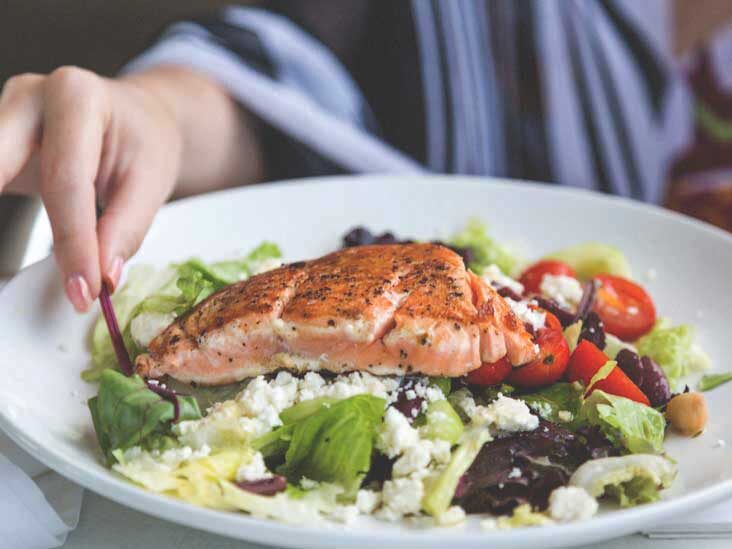
The obvious reason exercise can help you shed weight is that it burns calories, makes it feel full, and it helps to lose fat. But exercise can be confusing. Many people underestimate the amount of calories they burn while exercising, which can lead them to overeat. Phelps and other athletes work out for between four and six hours per day. However, this is not the case for everyone. Your burn rate during exercise may be higher than you actually are.
Exercise is a great way to lose weight
Besides helping you lose weight, exercise can also help you change your body composition. There are two main types of mass: fat mass and non-fat mass. They are often confused. Exercise can help you lose weight faster. It will help you feel fuller, lose weight and burn more calories than you consume. You can lose weight quicker by using the right exercises and achieve the body you want.
It burns calories
It's easy to find out how many calories are being burned by using an exercise calculator. Enter your age, height and weight into the calculator, and choose the type of exercise you'd like to do. The exercise calculator will show you which moves or modifications will help you reach your weight loss goals. Your doctor should discuss your medical history as it may affect your exercise program. Your doctor will be able to recommend the best exercise for you, and how to monitor your glucose levels.

It makes you hungry
You may have heard that weight loss exercise can make you hungry. But is this true? Exercise for weight loss often doesn't result in you feeling full after a workout. Studies show that low- or moderate intensity exercise can cause you to feel hungry more quickly than walking. It could be that an intense workout temporarily suppresses appetite. However, a more intense workout is known to help with weight loss by redirecting blood supply to muscles or the brain.
It helps you lose fat instead of muscle
Weight loss is the goal to reduce body fat while maintaining or enhancing your muscle mass. Losing muscle while losing body fat can lead to fatigue, and other negative symptoms. To counter this, exercise is essential for weight loss. Here's how weight loss exercise can help. It's important to remember that when you work out, your goal is to lose fat, not build muscle. So how do you know if you're working out for the wrong reasons?
You feel fuller when you eat less.
First, exercising makes you feel fuller and less hungry. Second, it takes your body longer to get back to rest after a workout. Longer exercise sessions can actually lead to increased hunger. Two-hour-long jogs may not lead to an increase in hunger. However, 20-minute interval training sessions with high intensity may. Because exercise takes up time you wouldn't otherwise eat.
It helps you lose weight faster
It is not easy to lose weight. Exercise is essential for many reasons. Weight loss is dependent on diet. A balanced lifestyle involves eating healthy food, exercising, and cardio. Be consistent in your exercise routine. It is important to exercise daily and keep active even when you are not training. Low-impact activities are a great way to burn calories even if your schedule isn't quite right.

It's better than a diet by itself
Exercising is good for your health and can help you lose weight. Many people believe that more physical activity means less calories. More physical activity can lead to the body adapting to its diet, which may reduce overall energy expenditure. Pontzer states that exercise can help people lose weight and not increase their daily calorie intake. Besides, it helps burn fat, too. Exercising can improve your overall quality-of-life.
FAQ
What can I drink in the morning while intermittent fasting?
Drink water before you go to bed at night. This helps you feel fuller quicker and gives you energy for the rest of your day. You can add lemon juice or cucumber slices to enhance the flavor.
How can you lose weight?
Losing weight is one of the most popular goals among people who want to look good. People desire to lose weight because they want to live longer, feel healthier, and live longer. There are many different ways to lose weight. These include strength training, cardio training, yoga and pilates. Each type of exercise has its own benefits and drawbacks. Walking would be the best exercise if you are trying to lose weight. To build muscle mass, you should consider lifting weights. In this article, we'll discuss how to lose weight and which exercise to choose.
The first thing to consider when losing weight is what kind of diet plan you should follow. It doesn't mean you have to eat less, but it is important to avoid junk food and eat more fresh foods. At least 2200 calories is recommended daily. You can lose weight quicker if you reduce your calorie intake. This will make it easier to lose weight.
You can lose weight quickly by getting active. Exercise is a great way to burn calories and increase your metabolism. To lose weight effectively, you must combine exercise with a healthy diet. You will lose weight by exercising. Regular exercise will help you burn more fat. Also, regular workouts help you maintain a healthy lifestyle. They keep you fit and prevent diseases such as diabetes, heart disease, obesity, hypertension, etc.
Walking is a great way to exercise. Walking is a great way to burn 500 calories per hour. You can burn about 1500 calories if you walk for 30 minutes each day. This will result in a loss of 1 pound per week. For 10 minutes, you can run or jog. Running burns approximately 1000 calories per hour. If your goal is to lose 5 pounds in 3 weeks, you should run for 20 minutes three times a week.
The best way to lose weight? Combine exercise and healthy eating habits. It is important to strike a balance among these two.
What is the best time to do Intermittent fasting in order to lose weight
The answer isn't as easy as it seems. There are many factors that need to be taken into consideration when deciding how many days of fasting is necessary for optimal fat loss. These are:
-
Your age. You may find intermittent fasting too difficult if you're younger (under 40) because you have less time between fasts. You may not have enough energy for a sustained period of daily fasting if you are older (over 60).
-
Your current body composition. A longer period of fasting is more beneficial for those with a lot of muscle mass. If you don't have a lot of muscle mass, shorter fasting periods may be more suitable.
-
How active you are. You may need to increase your fasting time if you exercise often. This will ensure you get enough rest between workouts.
-
Your health history. People with heart disease, diabetes, and cancer may require extra fasting monitoring.
-
How do you handle stress? Stressful situations often cause us to eat more. You may need to extend your fasting times in order to avoid this problem.
-
It is the type of diet you are following. Certain diets, like ketogenic diets, may require even longer fasting periods.
-
The quality of your sleep. The quality of your sleep is also a factor in increased appetite and decreased metabolism. It may take some trial and error before you find the right combination.
-
How much protein you eat. Protein stabilizes blood sugar levels. Therefore, eating more protein could result in lower insulin levels. This would allow for you to fast more often.
-
Whether you're trying to gain or lose weight, people who are trying to gain weight usually require longer fasting periods than those who are trying to lose weight.
-
How many calories did you consume during your fasting period? You might lose more fat if your daily calories are lower than those you consume.
-
Your overall fitness level. People who are fit and fast burn more calories per day.
-
Your gender. Men tend to have greater appetites that women, so they may need a longer fast. Women generally have smaller appetites, so they may only need to fast for about 20-30 minutes every morning.
-
Your lifestyle. Do you get enough physical activity? Do you workout several times each week? Does your job involve sitting at a desk all day long? All these factors can have an impact on how much time you should speed.
-
How much do you spend per month on food? Healthy eating doesn't mean you have to spend a lot on groceries. You can save money by buying whole grains instead of white bread, fruits instead of candy bars, and lean meats instead of fatty cuts.
-
You need to be able to control your hunger. You might not have to fast as much if your hunger isn't a problem.
How long does it take to lose weight?
It takes time to lose weight. It usually takes six months to lose 10% of your total weight.
You shouldn't expect weight loss overnight. Your body needs to adjust to new dietary habits.
This means that you need to slowly change your diet over a period of time, such as a few days or weeks.
Also, you should stop taking fad diets because most of them don't work. Instead, try to change your daily routine.
Consider, for instance, that you often eat unhealthy snacks late at the night. You need to reduce this behavior.
Eat healthier meals earlier in evening. This will ensure that you don't snack late at night.
It is important to drink lots of water throughout the day. Water is essential for keeping your body hydrated. Dehydration can make you feel tired and weak.
It is important to drink plenty of water throughout each day to stay energized.
Finally, you should reduce stress levels by doing things that relax you. Spending time with loved one could help you reduce stress.
You can also listen to music or read books.
These activities will help you unwind from stressful situations. In addition, they will improve your mood and boost your self-esteem.
It is essential to think about your health before you lose weight.
Your overall health can be measured by your physical fitness. You should eat right and exercise regularly if you want a fit body.
Are there side effects to intermittent fasting
There are no known negative side effects of intermittent fasting. Some minor issues might occur if you do not plan your meals properly.
If you skip breakfast, for example, you may feel constantly irritable. It is possible to experience headaches and muscle cramps.
These symptoms usually disappear within a few days.
Statistics
- According to Harvard Health, it's estimated that a 155-pound (70-kg) person burns roughly 112 calories per 30 minutes of weight training (5). (healthline.com)
- One study in 9 active men found that HIIT burned 25–30% more calories per minute than other types of exercises, including weight training, cycling, and running on a treadmill (18Trusted Source (healthline.com)
- One 6-month study showed that simply doing 11 minutes of strength-based exercises 3 times per week resulted in a 7.4% increase in metabolic rate, on average. (healthline.com)
- According to a study sponsored by the American Council on Exercise, a person weighing around 140 pounds (64 kg) would burn 108 calories at a 30-minute beginner's Pilates class or 168 calories at an advanced class of the same duration (26). (healthline.com)
External Links
How To
9 Tips to Lose Weight Naturally
The number one problem that people face is losing weight. If you're constantly trying to lose weight, it can be very difficult to live a healthy life. You can lose weight by exercising, dieting and other methods, but they do not last forever.
Today I will share natural ways to lose your weight with no side effects. Let's start!
-
Lemon Water Drinking lemon water helps to flush out toxins from your body. This drink can detoxify your body, and it will keep you energized all day. Drinking this drink daily can help you reduce weight.
-
Eat more vegetables. Vegetables contain fiber, vitamins, minerals, antioxidants, and other nutrients that are essential for our health. They provide us with a feeling that we are full. Eating vegetables can help you lose weight.
-
Increase Protein Intake. Protein is an important nutrient that plays an important role in building muscles. A high-protein diet can help you build lean muscles and thus reduce weight.
-
Green tea is a good choice. Green tea has caffeine, which lowers appetite and speeds up metabolism. Research has shown that caffeine can increase thermogenesis, or the process by which heat is created. Thermogenesis is what makes coffee drinkers more likely to consume less fat than non-coffee drinking counterparts.
-
Take Cold Showers. Cold showers can help you lose more calories. Research has shown that cold showers can help you burn more calories than warm ones.
-
Avoid Alcohol. Alcohol is a stimulant that can lead to weight gain. You will easily gain weight if you drink alcohol often.
-
Cardio exercise is a good idea. Cardiovascular exercise is known to be effective in reducing weight. It improves blood circulation, boosts energy levels, and keeps you fit. Walking, swimming, cycling and running are all possible.
-
Don't Skip Meals. Eat small meals throughout each day to manage your hunger pangs. Skipping meals can lead to fatigue, lack of concentration, and even depression.
-
Reduce Sugar Consumption. Sugar is addictive and can negatively impact your mood. Sugar can temporarily give you energy but you feel tired and sluggish after you stop eating it.